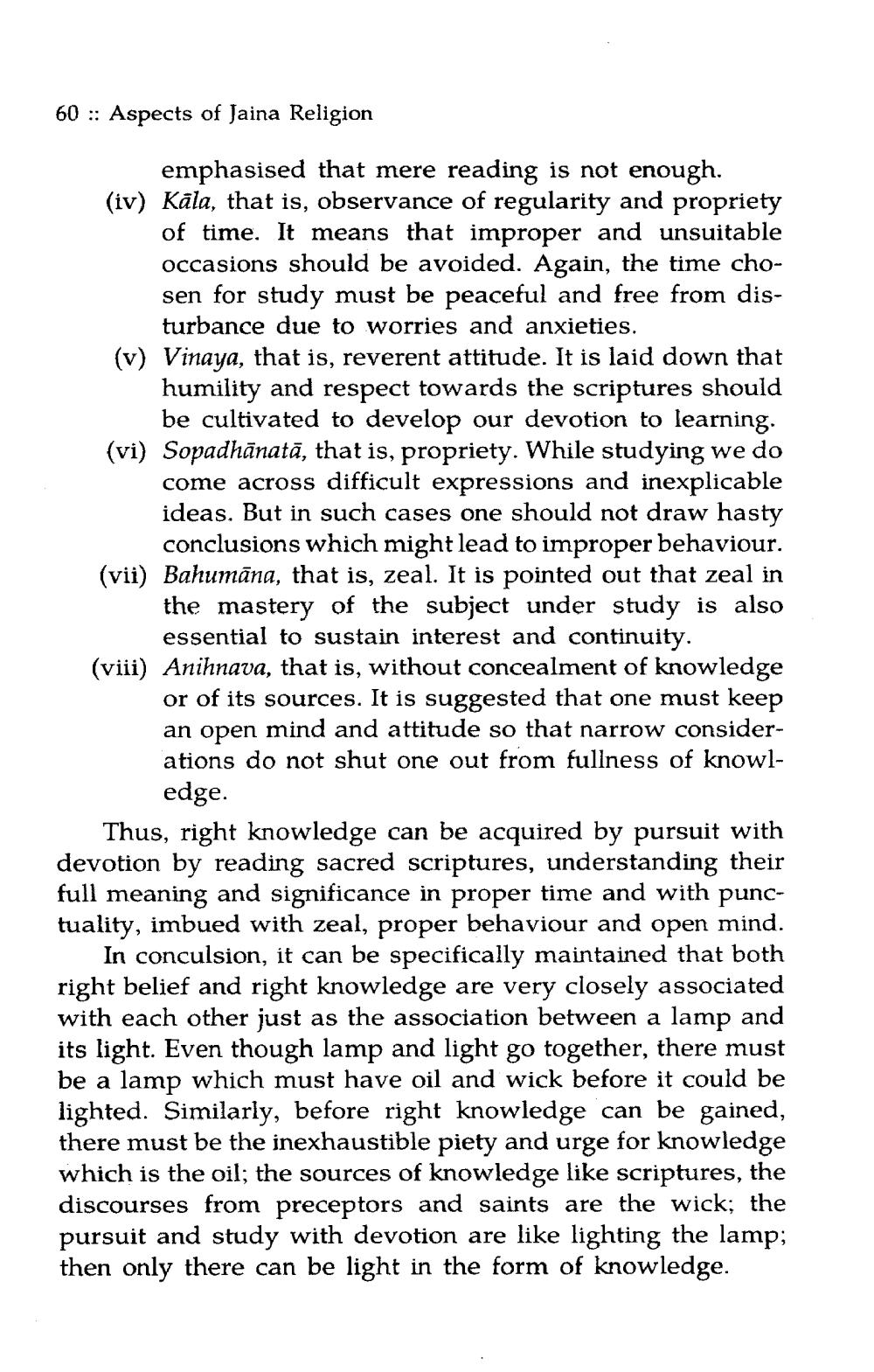________________
60 :: Aspects of Jaina Religion
emphasised that mere reading is not enough. (iv) Kāla, that is, observance of regularity and propriety
of time. It means that improper and unsuitable occasions should be avoided. Again, the time chosen for study must be peaceful and free from dis
turbance due to worries and anxieties. (v) Vinaya, that is, reverent attitude. It is laid down that
humility and respect towards the scriptures should
be cultivated to develop our devotion to learning. (vi) Sopadhānatā, that is, propriety. While studying we do
come across difficult expressions and inexplicable ideas. But in such cases one should not draw hasty
conclusions which might lead to improper behaviour. (vii) Bahumāna, that is, zeal. It is pointed out that zeal in
the mastery of the subject under study is also
essential to sustain interest and continuity. (viii) Anihnava, that is, without concealment of knowledge
or of its sources. It is suggested that one must keep an open mind and attitude so that narrow considerations do not shut one out from fullness of knowl
edge. Thus, right knowledge can be acquired by pursuit with devotion by reading sacred scriptures, understanding their full meaning and significance in proper time and with punctuality, imbued with zeal, proper behaviour and open mind.
In conculsion, it can be specifically maintained that both right belief and right knowledge are very closely associated with each other just as the association between a lamp and its light. Even though lamp and light go together, there must be a lamp which must have oil and wick before it could be lighted. Similarly, before right knowledge can be gained, there must be the inexhaustible piety and urge for knowledge which is the oil; the sources of knowledge like scriptures, the discourses from preceptors and saints are the wick; the pursuit and study with devotion are like lighting the lamp; then only there can be light in the form of knowledge.




